Safety in Numbers: The Preference Cascade
From Trump to "The Jews," more people are revealing their true feelings
In the wake of the attempted assassination of former President Donald Trump, commentators began observing that Trump supporters seemed “to be coming out of the woodwork.” People who, hitherto, had kept quiet began openly sharing their intention to vote for The Donald in the upcoming election.
A similar observation has been made regarding the outpouring of blatant antisemitism in the months following the October 7th attack on Israel by Islamic terrorists. The ideology of radical Islam not only seeks to destroy Israel, but is violently opposed to gay rights, women’s rights, and all forms of secular governance, including socialism and communism. Nevertheless, an astonishing number of gays, women, and leftists have vigorously protested against everything associated with Israel - often by harassing and intimidating Jewish students and shopkeepers who obviously have zero influence over the policy decisions of the Jewish state.
These activists earnestly advocate in support of “Palestinian resistance,” as well as chanting for “Intifada revolution” and occasionally flying the flags of Hezbollah and other terrorist organizations - efforts that earned an enthusiastic letter of praise from Ayatollah Khamenei, Supreme Leader of the Islamic Republic of Iran, a nation where women are imprisoned, tortured, and killed for leaving their homes with their hair uncovered.
Undeterred, the pro-Islamist protesters have continued advocating for an ideology that would happily kill them all – a paradox that astute observers have attributed to an affinity for demonizing “Zionists” (AKA “the Jews”) - a proclivity which seemingly unites a broad coalition of otherwise natural enemies.
Is there a principle that explains why antisemites and Trump supporters are suddenly revealing their true colors?
It just so happens there is. It’s called the “preference cascade.”
Putting the Science in Political Science
Political science is sometimes considered an oxymoron, as the field is rife with untestable theories like “structural functionalism” and “democratic peace theory,” which are devoid of anything resembling the scientific method. But the preference cascade is not nearly as fuzzy or philosophical as it sounds.
The concept is easy to understand: a preference cascade is a seemingly sudden shift in public opinion that occurs as individuals, influenced or inspired by others, begin expressing previously suppressed views. This can quickly change societal norms and lead to significant political and social changes.
A prime example of a preference cascade is the US Civil Rights Movement. During the 1950s and 1960s, many people opposed racist policies, but did not have the courage to speak up. However, events like the Montgomery Bus Boycott and the March on Washington showed these more timid souls that they were not alone in their feelings. A critical mass of activists encouraged more people to join the movement, leading to a significant shift in public opinion and major legislative changes.
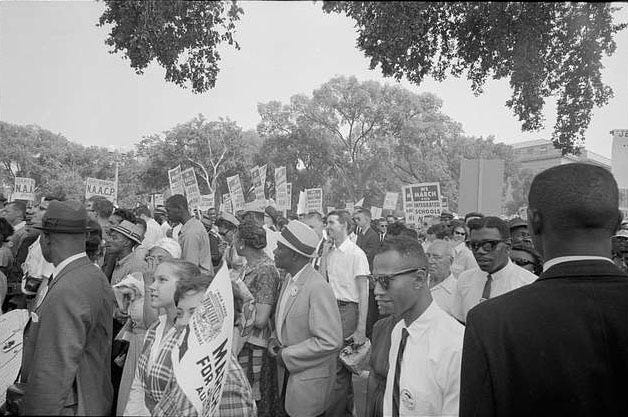
Preference Thresholds and Falsification
It takes a lot of courage to be the first one to stand up for something you believe in. Especially if - like hating Jews or supporting Trump - there are undesirable social ramifications associated with that belief. It takes slightly less courage to be the second person to stand up, and a whole lot less courage to be the thousandth. This means that, as more people publicly profess a provocative opinion, more previously silent people are emboldened to do the same.
The point at which an individual feels safe enough to speak up is called the “preference threshold.” Mathematically, this is the fraction of the population that must express a preference before that individual will do the same.
Until that threshold is reached, he or she will either stay silent or engage in “preference falsification,” pretending to agree with the prevailing, socially-approved position and hiding their true feelings.
Preference falsification is pernicious, because it creates a sense of isolation. If everyone hates the government but pretends to love it, each person thinks that he or she is in the tiny minority of people who feel that way. Under such conditions, many people will feel that it’s too dangerous to speak up.
Soviet-era Czech dissident Vaclav Havel vividly described this phenomenon in his writings. He also explained that a situation with widespread preference falsification is ripe for a preference cascade.
Cascade formation begins with people who have preference thresholds close to zero. These people are brave enough to stand on their own, do not engage in preference falsification, and are often subjected to widespread criticism and scorn. Nonetheless, their refusal to stay silent can activate other individuals with low preference thresholds, beginning a slow chain reaction.
When enough individuals reach their thresholds, it triggers a societal tipping point. The cascade snowballs as previously suppressed opinions are rapidly revealed as being widespread.
Of course there are other factors, such as the way that propaganda and censorship affect the degree to which people are aware of the preferences of others, as well as how much risk they perceive to be associated with expressing their true opinions. There are also triggering events, which effectively lower the preference threshold for many people at the same time.
Revolutionary Cascade
Preference cascades are usually associated with specific policies or social movements. But sometimes they get big. Very big. A “revolutionary cascade” is a specific type of preference cascade that leads to a political revolution or significant regime change. It occurs when individual acts of defiance or dissent rapidly build momentum, leading to widespread participation and the eventual overthrow of an existing government or political system.
A prime example of a revolutionary cascade is Czechoslovakia’s 1989 “Velvet Revolution.” Inspired in part by the writings of Vaclav Havel, the cascade was triggered by the brutal police response to a peaceful student demonstration. Hundreds of thousands of people took to the streets, leading to a non-violent overthrow of the Communist regime and the establishment of a parliamentary republic.
Conformity and Social Pressure
The preference cascade theory is closely related to the behavioral psychology concepts of conformity and social pressure. Entire textbooks have been written about this, but the short version is that most people are so afraid of being criticized or ostracized that they go along with the crowd, even when they know the crowd is wrong.
What’s worse, a significant percentage of people will make themselves feel better about this internal contradiction (which Leon Festinger called cognitive dissonance), by changing their beliefs to align with their actions, rather than altering their behavior.
In other words, a preference cascade will begin with people who secretly held a disapproved view to begin with, but once that opinion becomes approved, a lot of other people will jump on board just to be in line with social norms.
This is one way of explaining how the German people went along with Nazism, how the Chinese went along with the Cultural Revolution, and how virtually every other large-scale atrocity moved from a tiny fringe into the mainstream.
It also explains how college students went from protesting against racism to blocking and threatening their Jewish peers in a matter of weeks.
The Tipping Point
Preference cascades are not inherently positive or negative.
In the case of Eastern European anti-communists, a preference cascade achieved a prosocial result: overthrow of an authoritarian government.
In the case of Islamic rebels in Iran, Iraq, and Afghanistan (along with numerous other countries), the results are undesirable: establishment of authoritarian theocracies.
Today, we seem to be experiencing preference cascades on a variety of subjects. From Trump and Jews to President Biden and “gender-affirming care,” public opinion is whipsawing so fast that it’s difficult to tell what the majority of people believe about anything.
This confusion is amplified by the vast numbers of people who have not yet reached their preference threshold. They are still either keeping their opinions hidden or falsifying their preferences. Does your neighbor or officemate secretly believe what you do? It can often be hard to tell.
The outcome of a preference cascade may be good or bad, but one thing is certain: it leaves people and their society very different than they were before.



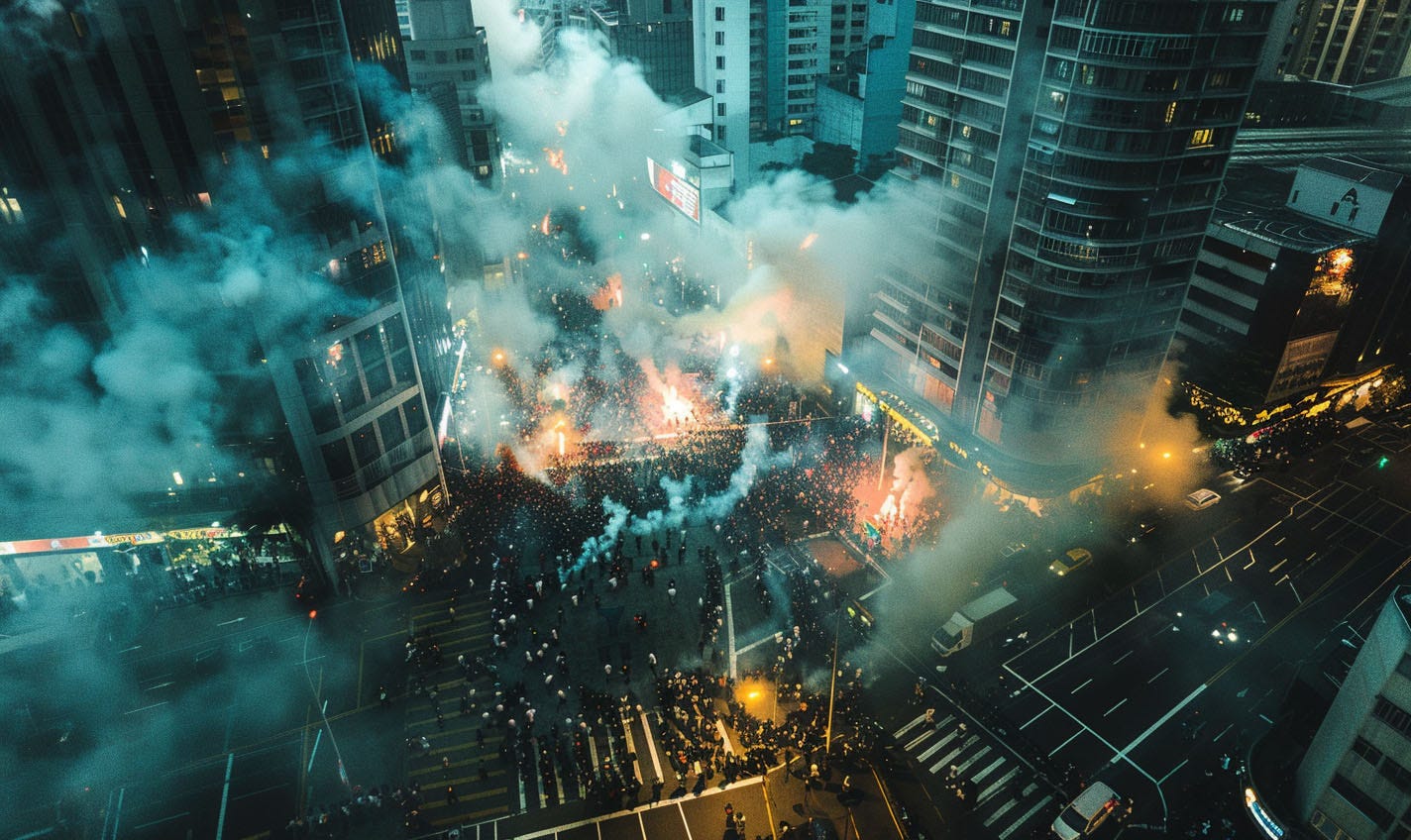
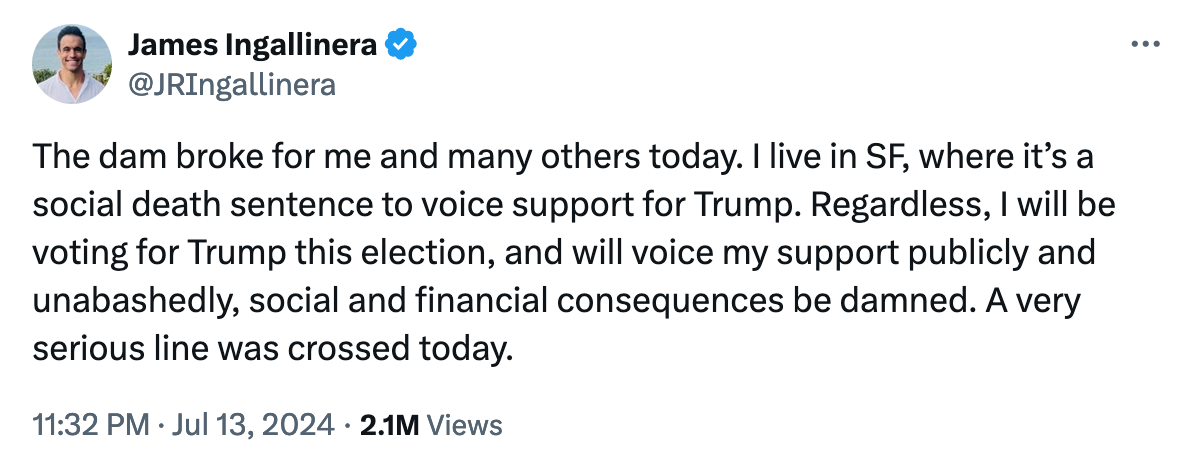
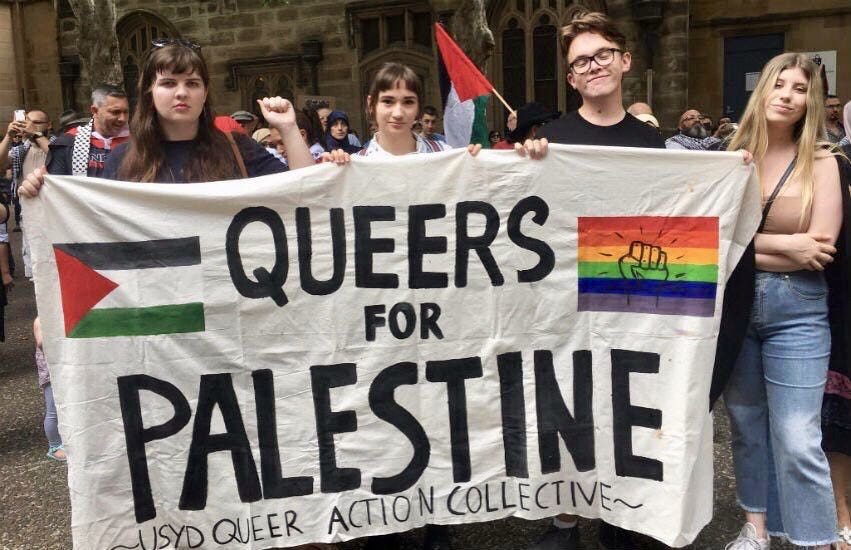
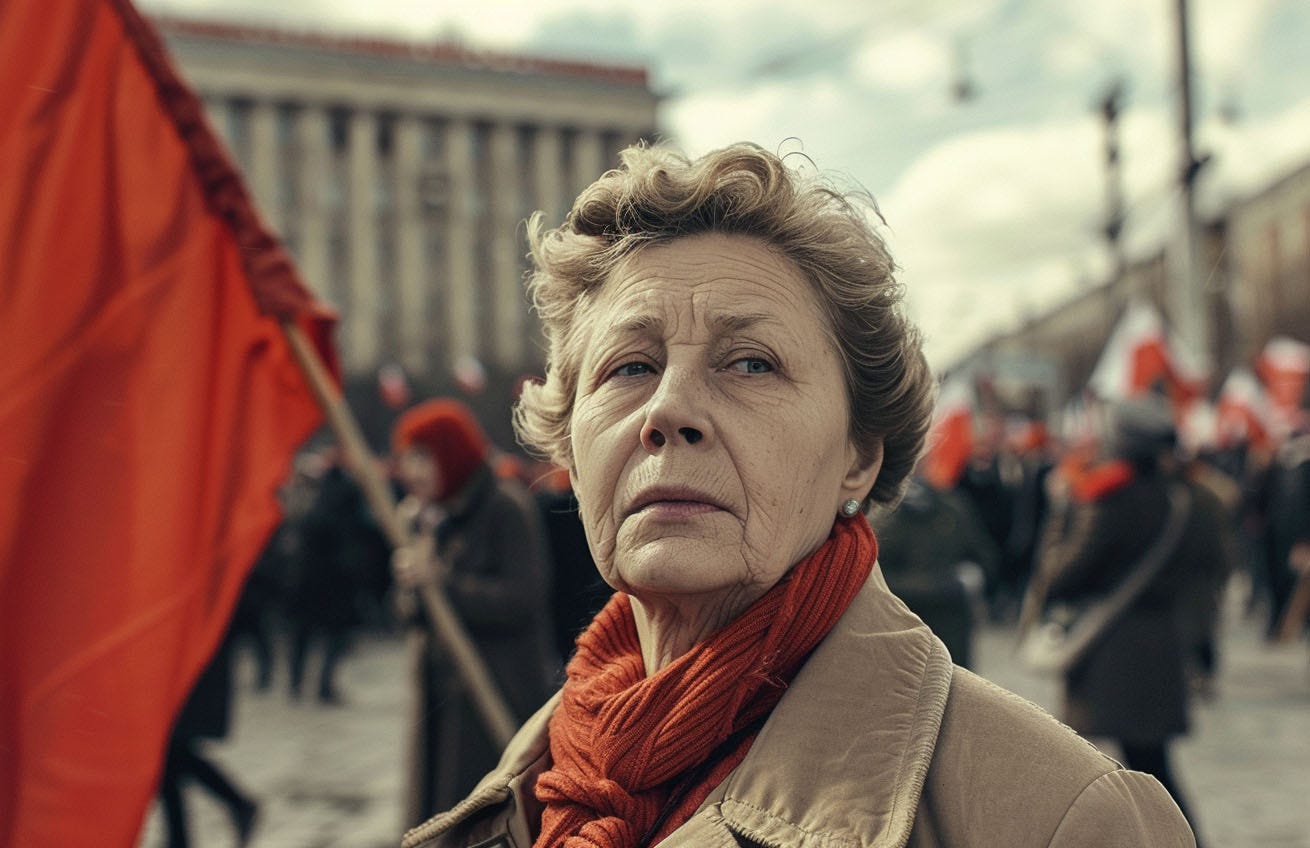
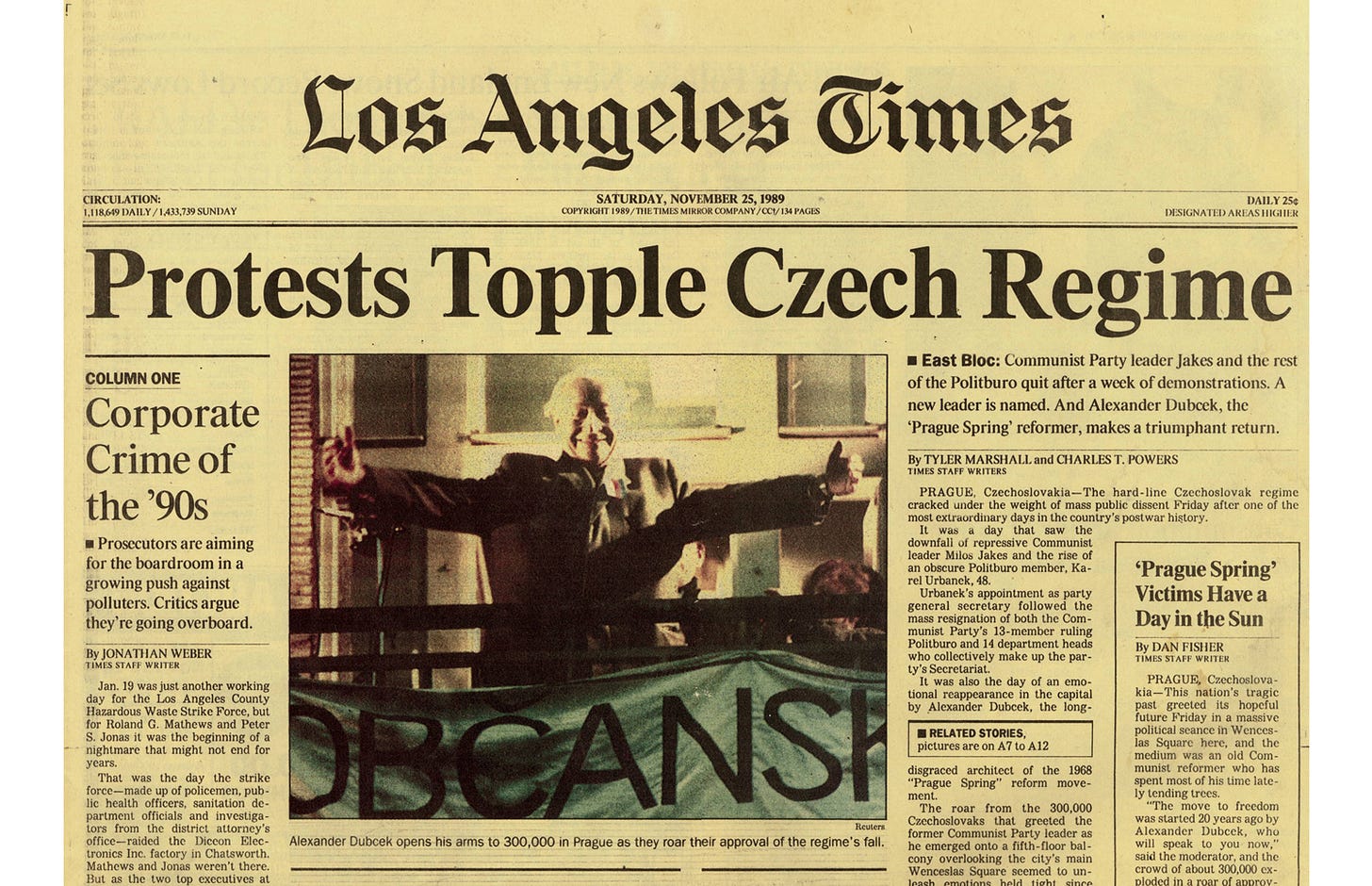
Thank you for this ! Love the term “ whipsawing””. It does seem like our society is doing a lot of that and it appears that the propaganda we have been spoonfed has encouraged this. That might be another article for you how people are manipulated by the media reports that vary widely from one day to the next and sources that were once trusted are exposed to be blatantly false. I think that surely the toppling down of institutions that were once revered due to the truth of their horrific foundations could definitely have the effect of changing people’s perceptions. But I also appreciate that you mentioned that tge Perference Cascade etc are not inherently good or bad. Great article. I think the world is in for some very turbulent times looking for peace and safety there or there saying this one or that one will save us ( sound familiar?!) It is a time I think when we must look within and discover who we are
http://www.jrnyquist.com/petr_cibulka_2003_0310.htm ...in the spring of 1991 we published the first issue of "Uncensored News" in about 70,000 copies. Our newspaper was then published by-weekly and later as a weekly issue. Unfortunately for Vaclav Havel's "velvet" regime this newspaper was too true and uncensored and was informing people too thoroughly about conditions in the Czech Republic. Our paper debunked many lies widely believed about the November revolution [of 1989] and the fact it was not an anti-communist revolution at all. It was a privatization coup organized by the reform wing of the Russian KGB. It was accomplished in order to install the self-invited "new administration," turning them into the country's rulers and lawful owners. And that was achieved in full measure by the communists, the STB and KGB structures under the leadership of Vaclav Havel. As a result there was a fraudulent privatization of state wealth that in fact ended up in the hands of communist and STB/KGB structures only.
This was shown fully and accurately in 1992 when, by blind luck, "Uncensored News" acquired and published the names of 160,000 officers and collaborators of the communist secret police, STB, and its Second Department (the department charged with the "struggle against interior enemies"). For the first time the people had a chance to read the truth about the level of infiltration and the level of control of this society by communist and STB powers and structures.
How much interest was there from the government and also from the public to publish the communist dossiers? Were there any obstacles put up by the state to block publication?
The public was, from the first day, insisting on a full disclosure and publication of all communist secrets (including those of the Soviet occupation government). Unfortunately, all the people in power, and that means President Havel, and all the others (Vaclav Klaus, Milos Zeman, Dienstbier, Pithart and others) were very strongly against it, against any publishing, against any openings of communist archives, against any punishment of communist criminals to whom they had guaranteed immunity! In fact, punishment was blocked by this "revolutionary bunch" through a "law" rubberstamped by the Czechoslovak Parliament -- a law that in fact guaranteed legal continuity with the previous communist regime. So today it is impossible to bring the communist criminals to justice. You see, the communist dictatorship passed laws so criminal and hideous that when it needed to liquidate people with a different way of thinking and believing it could do so legally. In fact, those who disagreed with the system were punished according to communist laws. Cases where it would've been necessary for the communists to break their own laws in order to punish somebody with different views do not exist.
A preference cascade here as well. A bourgeois one. Luxury and celebrity go far.